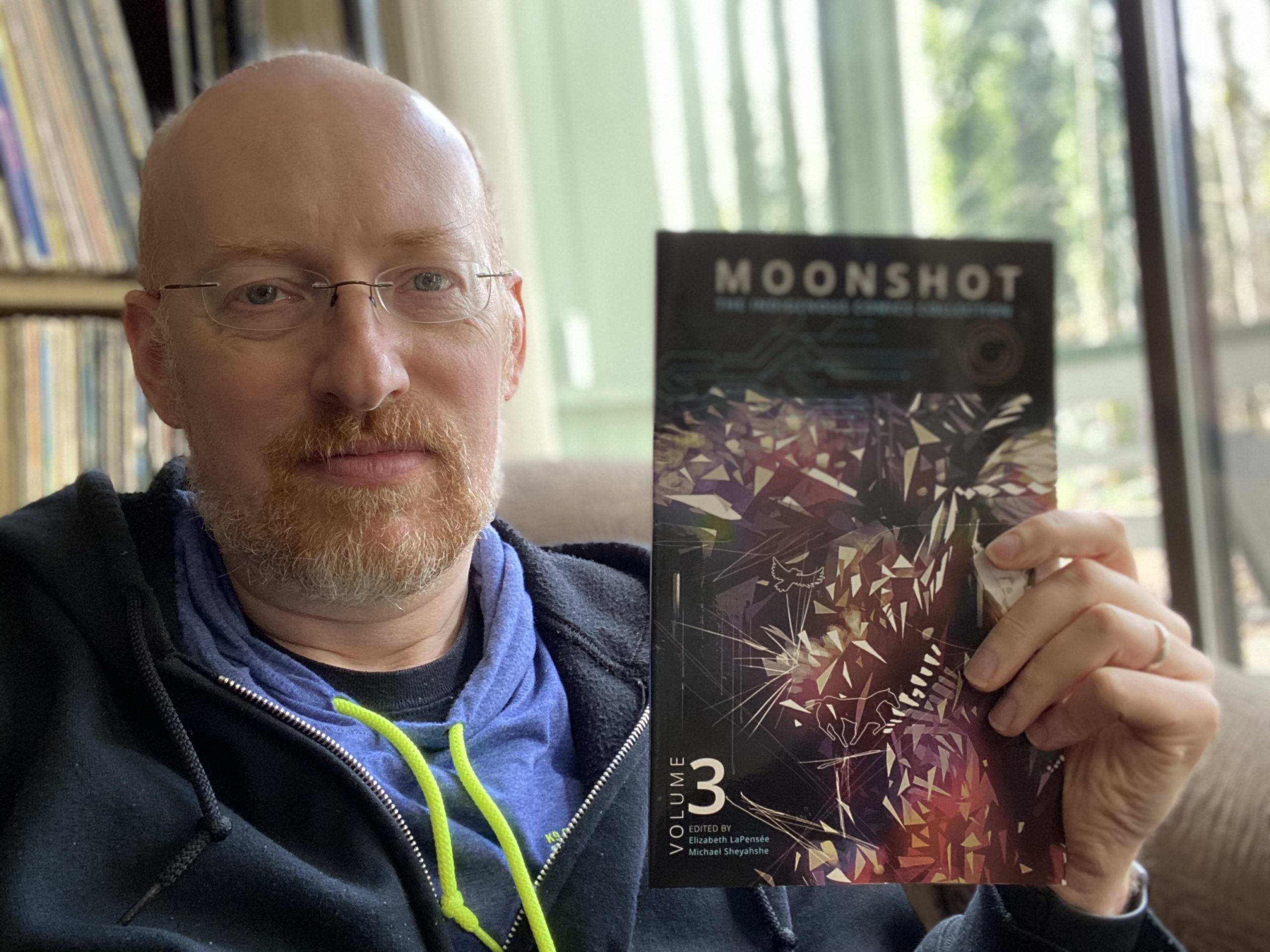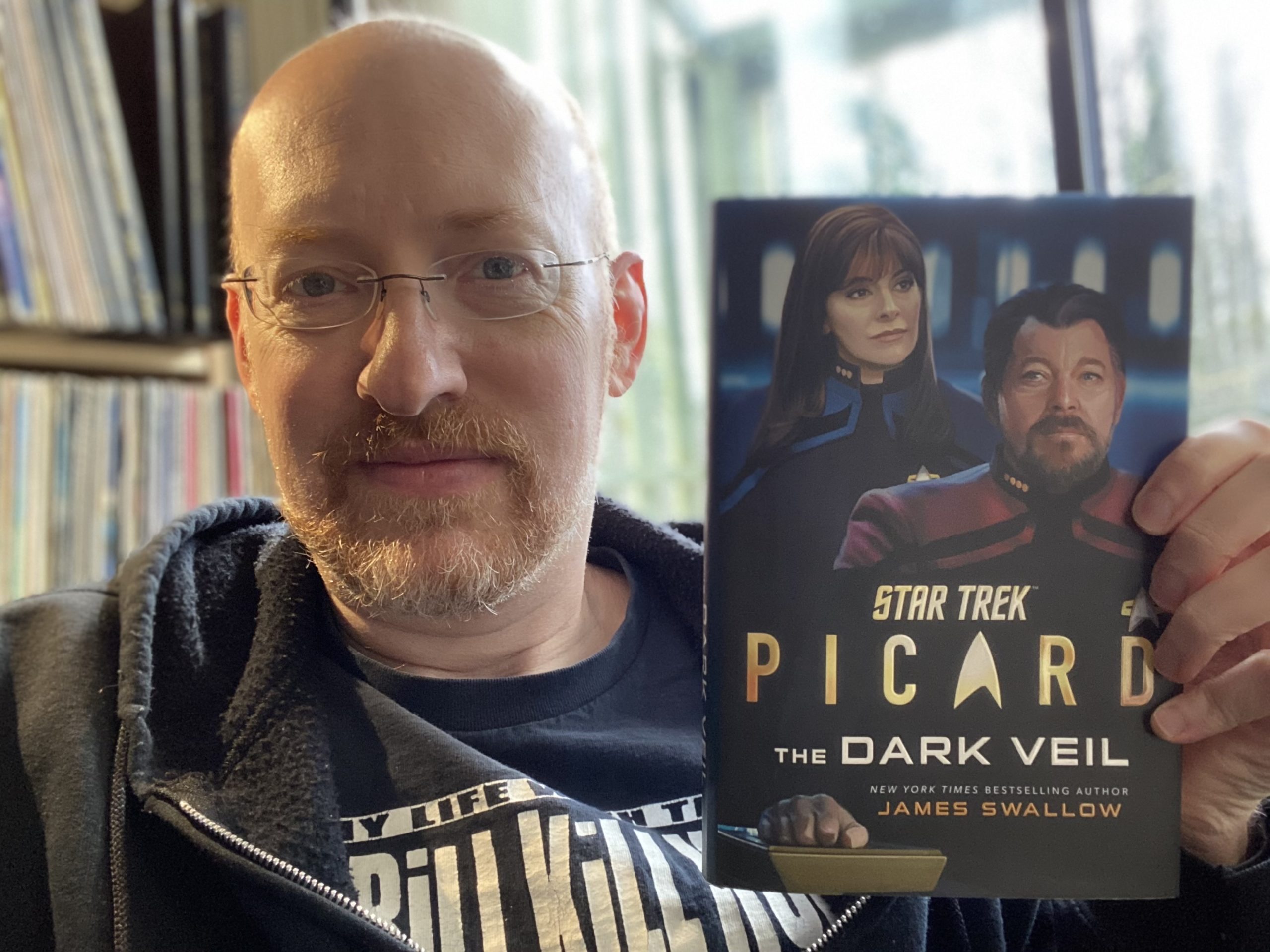Every year, I set myself a goal of reading at least 52 books over the course of the year — an average of one a week. This year I made it to 54. Here’s a quick (?) overview…

Basically, 2020 took its toll, and all lofty ideas and goals aside, this year was almost entirely dedicated to escapist fluff. Gee, I wonder why that was the case?
Non-fiction: Just one, and it was Star Trek: The Motion Picture: Inside the Art and Visual Effects, so not exactly pushing my boundaries here. Still, it’s an excellent work, and is a perfect companion to Preston Neal Jones’ Return to Tomorrow, which covers the same territory in much more depth but without the visuals.
Non-genre-fiction (where “genre” is shorthand — though, not very short, if you include this parenthetical — for science-fiction, fantasy, and horror): Three this year, the best of which was Fredrik Backman’s My Grandmother Asked Me to Tell You She’s Sorry, which was recommended to me by my wife and which I can easily recommend to you.
Quality genre fiction: While I had high hopes for this category after starting my Hugo reading project and getting through twenty-two books in 2019, this did not end up being anywhere near the majority of my reading.
It started well, with a strong slate of Philip K. Dick Award nominees. Both the winner, Sarah Pinsker’s Sooner or Later Everything Falls Into the Sea, and the Special Citation Award, Sarah Tolmie’s The Little Animals, were excellent, and there weren’t any this year that I didn’t like.
Continuing the Hugo reading project also started well, with Frank Herbert’s Dune (which mostly holds up, though the obvious queer coding of Baron Harkonnen and Piter de Vries to indicate villainy or imply untrustworthiness is something that really stood out on this read), and proceeded apace for a while — but then, well, 2020 happened. Plague! Lockdown! Isolation! And while on one level, being stuck at home with little to do sounds like a great way to get a lot of reading done, for me, at least, the attendant ever-present stresses of living the pandemic life meant that concentrating on serious fiction was difficult to do. I kept trying for a while, but then hit John Brunner’s Stand on Zanzibar — a bleak dystopian vision of overpopulation, government control of the masses, eugenics, colonialism, and protests by an oppressed populace, all wrapped in a very cynical extrapolation of late-60s sexism and racism pervading society in ways that are very different from what we experience now but simultaneously depressingly prescient in how they are still such strong influences. With all that, it took me nearly three full months to slog through (from June 7 to September 30), and I had to take several “fluff breaks” during that time. It wasn’t a bad book, but it was really tough to read something that bleak during this year, and I can’t say that I enjoyed it.
Fluff genre fiction: Unsurprisingly, this ended up being the strong majority of this year’s reading. Almost entirely Star Trek novels, with a few detours into movie adaptations. And given everything that was going on in 2020, it was very nice to have a bookshelf full of options that wouldn’t take a whole lot of brain power for me to disappear into.
Finally, some stats on my year’s reading, according to Goodreads:
- 15,842 pages read across 54 books
- Shortest book: Isaac Asimov’s Lucky Starr and the Oceans of Venus (142 pages)
- Longest book: John Brunner’s Stand on Zanzibar (650 pages)
- Most popular: Frank Herbert’s Dune (1,481,714 other readers)
- Least popular: A “double novel” of Leigh Brackett’s The Nemesis from Terra and Robert Silverberg’s Collision Course (29 other readers)








